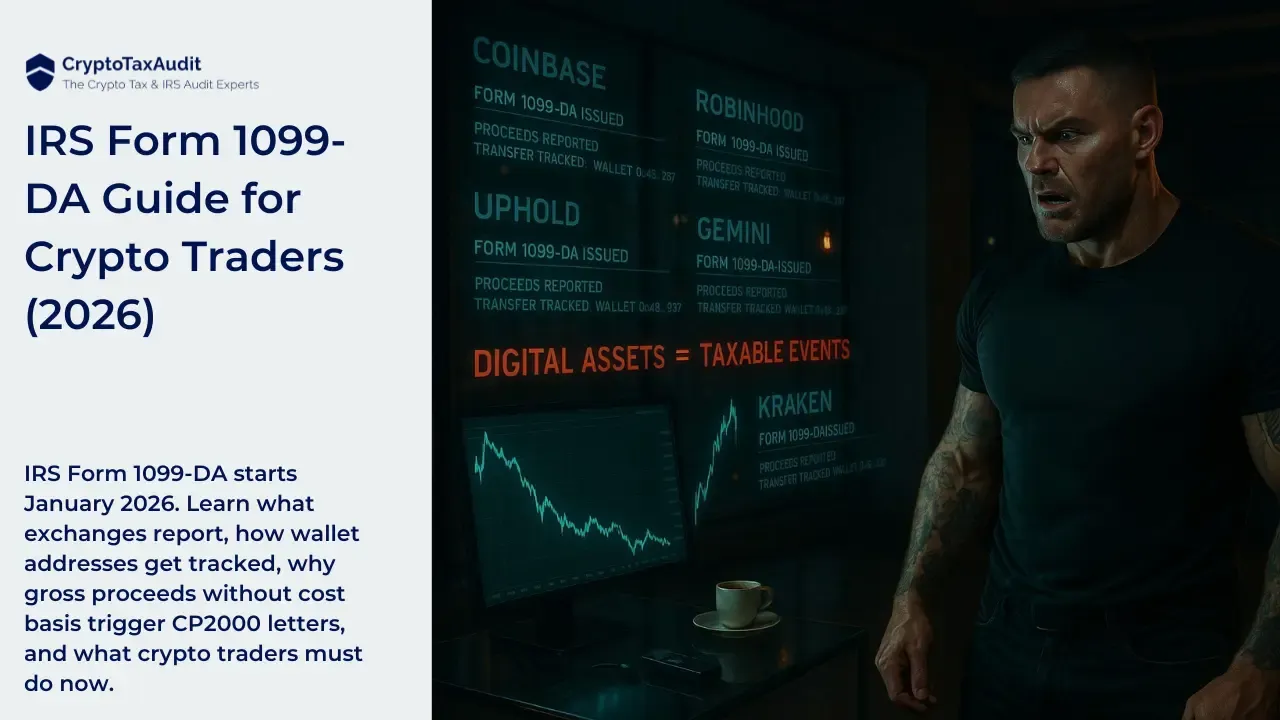
Clinton introduces us to the intricate world of cryptocurrency taxes with Ben Weber, Crypto Analytics Manager at CryptoTaxAudit. Dive into the nitty-gritty of gain calculations, audit defenses, and the misconceptions about crypto taxes that might be costing you. (TCDS-27)
Introduction.
As the cryptocurrency market continues to evolve, so do the challenges surrounding crypto tax reporting and gain calculation. Clinton Donnelly recently interview Ben Weber, Crypto Analysts Manager at CryptoTaxAudit, about the gain calculation crisis that now exists in reporting of digital assets.
Understanding the importance of accurate gain calculations.
Ben emphasized the critical role of accurate gain calculations in the cryptocurrency taxation process. Gain calculation involves determining the profit or loss incurred from crypto transactions and plays a crucial role in tax reporting. Achieving precise gain calculations is challenging due to various factors, including the diversity of blockchain protocols, the emergence of new cryptocurrencies, and the complex nature of DeFi (Decentralized Finance) transactions.
The challenges of DeFi and NFTs.
DeFi and NFTs (Non-Fungible Tokens) present unique challenges in gain calculation. These technologies offer a wide range of investment opportunities but also introduce complexities in tracking and reporting transactions. Smart contracts within blockchain transactions further complicate the process, making it essential for taxpayers to have a clear understanding of their crypto activities.
The divergent results from crypto tax calculation services.
One of the most surprising revelations from the episode was the significant divergence in results obtained from different crypto tax calculation services. Even when provided with the same transaction data, these services produced varying outcomes in terms of total transactions, total proceeds, and total gains. This discrepancy highlights the need for taxpayers to carefully choose a tax calculation service and thoroughly understand how it operates.
The importance of regulation and guidelines.
Good regulation and clear guidelines for crypto taxation are crucial for both taxpayers and regulators. Regulation should aim to protect investors, ensure compliance with tax laws, and create a standardized framework for reporting crypto transactions. Guidelines for blockchain data reporting would help streamline the gain calculation process and minimize errors.
The role of professional services.
Professional tax services, especially those with expertise in cryptocurrency taxation, play a vital role in helping individuals navigate the complexities of gain calculation. These services can provide accurate and defensible calculations, assist with IRS audits, and ensure that taxpayers report their crypto income correctly.
Challenges in a changing landscape.
The crypto market is continually evolving, with new protocols, blockchains, and cryptocurrencies emerging regularly. This dynamic environment presents ongoing challenges for both taxpayers and tax professionals. Additionally, the cost of gaining access to accurate tax services can be a barrier for many individuals.
Closing thoughts.
In conclusion, accurate gain calculations are essential for complying with cryptocurrency tax regulations. However, the complexity of crypto transactions, especially in the DeFi and NFT sectors, combined with the divergence in results from various tax calculation services, makes it imperative for individuals to choose their tax services wisely.
Additionally, clear regulation and guidelines are needed to create a standardized framework for crypto tax reporting. Professional tax services can help individuals navigate these challenges and ensure compliance with tax laws in an ever-changing crypto landscape. As the crypto market continues to evolve, staying informed and seeking expert advice will remain crucial for crypto investors and taxpayers.
The full interview.
View the full interview on The Clinton Donnelly Show.
DISCLAIMER: Opinions and perspectives of the author, host, and guests. It should not be construed as U.S. taxpayer advice. There are often multiple interpretations of tax law. Various strategies may be suited to specific individuals and for particular situations. Seek out professional tax, legal, or financial advice from CryptoTaxAudit or from other reputable companies.





